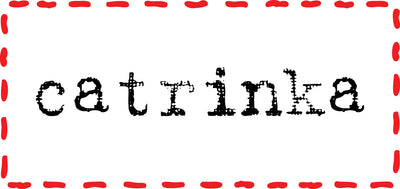I've Never Met a Lazy Woman
Our founder's love letter to the ladies, written for the BF+DA (link here), in honor of International Women's Day 2015.
I love men. Big fan of them. I have an extraordinary father, a husband I adore, and two sweet little boys. I created a company dedicated to investing in women and girls not because I have anything against men, but because I want my little company to have the biggest and best possible impact on the lives of people in the developing world, and creating choices for women and girls is the way to do that – they will do the rest.
Women reinvest twice as much of their income in their families and communities as men do. That means that when you invest in a woman, you know she will reinvest her gains in the next generation – she’ll pay it forward, multiplying the impact of your investment and helping to break the cycle of poverty. And yet worldwide women are held back by cultural traditions, ignorance and fear. Women and girls who find the courage to make choices for themselves can face horrific consequences – as the story of Malala Yousafzai,the Pakistani schoolgirl shot in the head for advocating for girls education, attests – or may find they don’t have the resources, skills and information they need to chart an alternate path, before the pressure to contribute economically, by marriage or work, and to produce children overwhelms them.
I have lived and worked on four continents, and traveled a lot. Everywhere I have been – from economically depressed sections of New Haven, Connecticut, to Kashgar, on the border of China and Pakistan, to the urban slums of Tegucigalpa, Honduras, women are working. You might see men sitting around on the front steps shooting the shit because they don’t seem to have anything else to do, but you never see women idle. Women in most of the world are the first to rise and the last to rest, the first to prepare food and the last to eat it. In many parts of the world, young mothers are expected to work hard, stay quiet, and eat little – and then subjected to abuse and abandonment if as a result, they are unable to bring a healthy baby into the world. I find it astonishing that it is not a universal truth that you should treat women well if you want a healthy family.
And despite all the curve balls that get thrown at them – from the headline-grabbing tactics like female genital mutilation and child marriage to the more subtle ones, like illiteracy (in Egypt twice as many women as men are illiterate) and prohibitions on work outside the home – women hustle, however they can, to make sure their families are fed, clothed, educated and cared for.
What inspires me is the possibility of removing some of those barriers in a really practical, informed way, so that women and girls can have choices in their lives. The choice to marry at 21 instead of 12. The choice to earn an income, and save and spend it wisely. The choice to educate their daughters as well as their sons. The choice to spend time enjoying life with their families, not just hustling to keep them alive. Creating choices means removing barriers and opening doors, and also channeling resources and supporting skills development so that women can put their dreams into action. Because of the ovarian lottery, as Bill Gates calls it, and extraordinary family support, I have had all of those choices, and my daughter – who I named my company after – has them too.
I want them for all of us.
Author Megan Reilly Cayten is a Venture Fellow at the Brooklyn Fashion+Design Accelerator and has lived and worked in infrastructure development on four continents, with a particular passion for Mexico, Central America, India and southeast Asia. Throughout her career, she has focused on developing, financing and operating sustainable core infrastructure and basic services, predominantly in developing countries. She is inspired by providing people at the bottom of the pyramid with access to basic resources and information so that they are liberated to pursue their dreams, and to make a better world for their children. She has three children, Caterina (“Catrinka”), Willito and Cavan, who don’t understand why every child doesn’t get to go to school.
